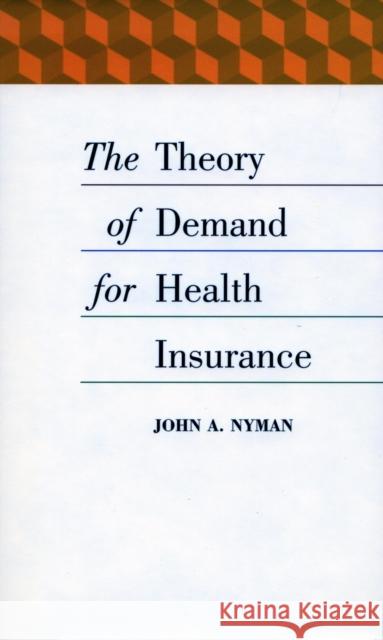The Theory of Demand for Health Insurance » książka
The Theory of Demand for Health Insurance
ISBN-13: 9780804744881 / Angielski / Twarda / 2002 / 216 str.
Why do people buy health insurance? Conventional theory holds that people purchase insurance because they prefer the certainty of paying a small premium to the risk of getting sick and paying a large medical bill. Conventional theory also holds that any additional health care that consumers purchase because they have insurance is not worth the cost of producing it. Therefore, economists have promoted policies--copayments and managed care--to reduce consumption of this additional, seemingly low-value care. This book presents a new theory of consumer demand for health insurance. It holds that people purchase insurance to obtain additional income when they become ill. In effect, insurance companies act to transfer insurance premiums from those who remain healthy to those who become ill. This additional income generates purchases of additional high-value care, often allowing sick persons to obtain life-saving care that they could not otherwise afford. Regarding risk, the new theory relies on empirical studies showing that consumers actually prefer the risk of a large loss to incurring a smaller loss with certainty. Therefore, if consumers purchase insurance, it is not because they desire to avoid risk. Instead, the new theory suggests consumers simply pay a premium when healthy in exchange for a claim on additional income (effected when insurance pays for the medical care) if they become ill. Health insurance is substantially more valuable to the consumer under the new theory. The new theory moreover implies that copayments and managed care--central health policies of the last 30 years--were directed at solving problems that largely did not exist. Because these policies either reduced the amount of income transferred to ill persons or limited access to valuable health care, they may have done more harm than good. The new theory also provides a solid theoretical justification for insuring the uninsured and for implementing national health insurance.











